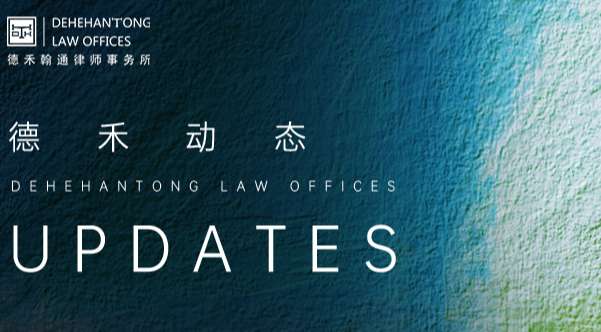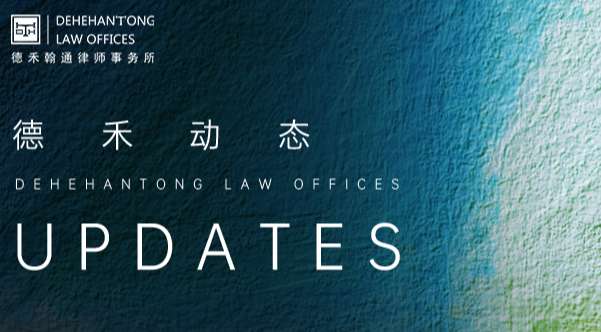Interpretation of the latest judicial practice of"Judicial Identification of Overtime Work and distribution of burden of Proof"
In the fast-paced, high-intensity workplace environment of modern society, overtime has become a common phenomenon. As an employer, reasonable payment of overtime wages is not only a legal obligation, but also the cornerstone of maintaining good labor-capital relations and promoting the harmonious development of enterprises. However, the identification of overtime pay involves complicated legal provisions and judicial practices, which often makes employers confused.
On August 14, 2024, the wechat public account of Shanghai No. 1 Middle School Court published a micro-course of "Judicial Determination of Overtime Work and Allocation of Burden of Proof". Based on this, this paper will sort out and summarize the recent judicial practice of adjudication institutions on overtime wage recognition, and provide practical guidance for employers.
The basic legal basis for the identification of overtime wages
China's Labor Law and Labor Contract Law have clear provisions on overtime pay. According to these laws, where an employer arranges workers to extend their working hours, it shall pay no less than 150 percent of the wages; Where rest days are arranged for labourers to work and compensatory rest cannot be arranged, wages not less than 200 per cent of wages shall be paid; Where labourers are arranged to work on statutory holidays, no less than 300 per cent of the wages shall be paid. These regulations provide the basic legal basis for the recognition of overtime pay.
Identification of overtime pay under different circumstances
1. Identification of overtime wages under the standard working hour system
The standard working hour system is the working time system implemented by most workers in China, that is, working no more than 8 hours a day, working no more than 40 hours a week, and resting at least one day a week. Under this system, the recognition of overtime pay is relatively straightforward. The employer shall, in strict accordance with the provisions of the law, pay corresponding overtime wages for working hours beyond the standard working hours.
What may be controversial in practice, however, is how to define overtime hours. For example, should the time workers take to eat or rest on the job be counted as overtime? In this regard, the court will usually consider the reasonableness of the actual circumstances. If the employer can show that the time is actually used for non-work meals or breaks, and does not interfere with the completion of work tasks, then these hours will generally not be counted as overtime.
2. Identification of overtime wages under the irregular working hours system and the comprehensive calculation of working hours system
The variable working hours system and the comprehensive calculating working hours system are the special working hours system relative to the standard working hours system. The irregular working hours system is applicable to the positions that cannot be measured according to the standard working hours due to the nature of the work or need to maneuver due to the scope of responsibilities, such as senior managers, field personnel, etc. The comprehensive calculation of working hours system is applicable to the special nature of work needs to work continuously or restricted by seasonal and natural conditions, such as transportation, water conservancy, geological exploration and other industries.
Under these two special working hour systems, the identification of overtime pay is more complicated. First of all, employers must be approved by the labor administrative department before they can implement these hours. Secondly, even if the special working hours system is implemented, the employer needs to pay overtime wages according to the actual work situation. For the irregular working hours system, if the actual management of the employer is no different from the standard working hours system, the court may find that there is a fact of overtime and require the employer to pay overtime wages. For the comprehensive calculation of working hours system, the employer needs to determine whether to pay overtime wages according to the total number of working hours in the cycle.
3, online overtime and home office overtime wage recognition
With the development of information technology, working overtime online and working from home has become the new normal. However, this new way of working also brings challenges to the recognition of overtime pay. In such cases, the employer should focus on whether the worker has actually provided substantial labor outside the legal working hours.
Workers can prove their overtime work by providing wechat chat records, emails, work logs and other evidence. Such evidence should be able to reflect the fact that the worker received work orders and dealt with work matters outside of working hours. At the same time, the employer should also conduct a rationality review of such evidence to ensure the authenticity and legality of the overtime facts.
In judicial practice, the court usually considers the evidence of the laborer and the defense reason of the employer comprehensively to judge whether there is the fact of overtime work and the payment of overtime wages. If the worker can prove that he or she provided substantial labor outside the legal working hours, and that the labor is directly related to the development of the employer's business, then the court will usually uphold the worker's claim of overtime pay.
4. Overtime wage recognition under the overtime approval system
In order to strengthen overtime management and reduce labor costs, many enterprises will implement overtime approval system. However, this system does not mean that unauthorized overtime work must not be recognized. In practice, if the worker does provide substantial labor outside the legal working hours, and the labor is arranged or requested by the employer, then even without approval, the court may find that there is a fact of overtime and require the employer to pay overtime wages.
Therefore, the employer should fully consider the actual situation and the legitimate rights and interests of workers when formulating the overtime examination and approval system. At the same time, in handling disputes over overtime pay, facts and laws should also be respected to ensure that the legitimate rights and interests of workers are protected.
Conclusions and Suggestions
The recognition of overtime pay is a complicated and sensitive issue, which involves many aspects such as law, policy and practice. As an employer, it shall strictly abide by the relevant provisions of laws and regulations and judicial practice to ensure the reasonable payment of overtime wages. At the same time, we should strengthen the internal management, improve the overtime examination and approval system, and improve the consciousness of workers' rights and interests protection, so as to build a harmonious and stable labor-capital relationship.
In the specific operation, the employer can start from the following aspects: first, establish and improve the overtime management system and overtime approval process; The second is to strengthen the legal education of workers and the cultivation of rights and interests protection consciousness; Third, pay attention to typical cases and adjudication rules in judicial practice; Fourth, we should actively communicate and negotiate with workers and properly handle disputes over overtime pay.
In short, the reasonable payment of overtime wages is not only the legal obligation and responsibility of the employer, but also an important guarantee for maintaining good labor-capital relations and promoting the harmonious development of enterprises. It is hoped that this paper can provide useful reference and guidance for employers.
Recommended Information
-
ArticlesThe Shenzhen version of the "guardian angel"came to prop up a day for the plight of minors2024-08-14
-
HonorsDehehantong won the"Law Firm of the Year 2024 in the Field of Insolvency Brand Impact"award2024-08-13
-
ArticlesThe latest reminder: the information submitted by the private fund manager in the AMBERS system is inconsistent with that of the industry and commerce, and needs to be corrected in a timely manner to ensure the unification of the two2024-08-08
-
ArticlesInterview | Protecting the beginning of the heart in the precipitation -- lawyer Zhang Wencan2024-08-07
-
ArticlesFive ways for minority shareholders to withdraw from the company under the new "Company Law"2024-08-06















